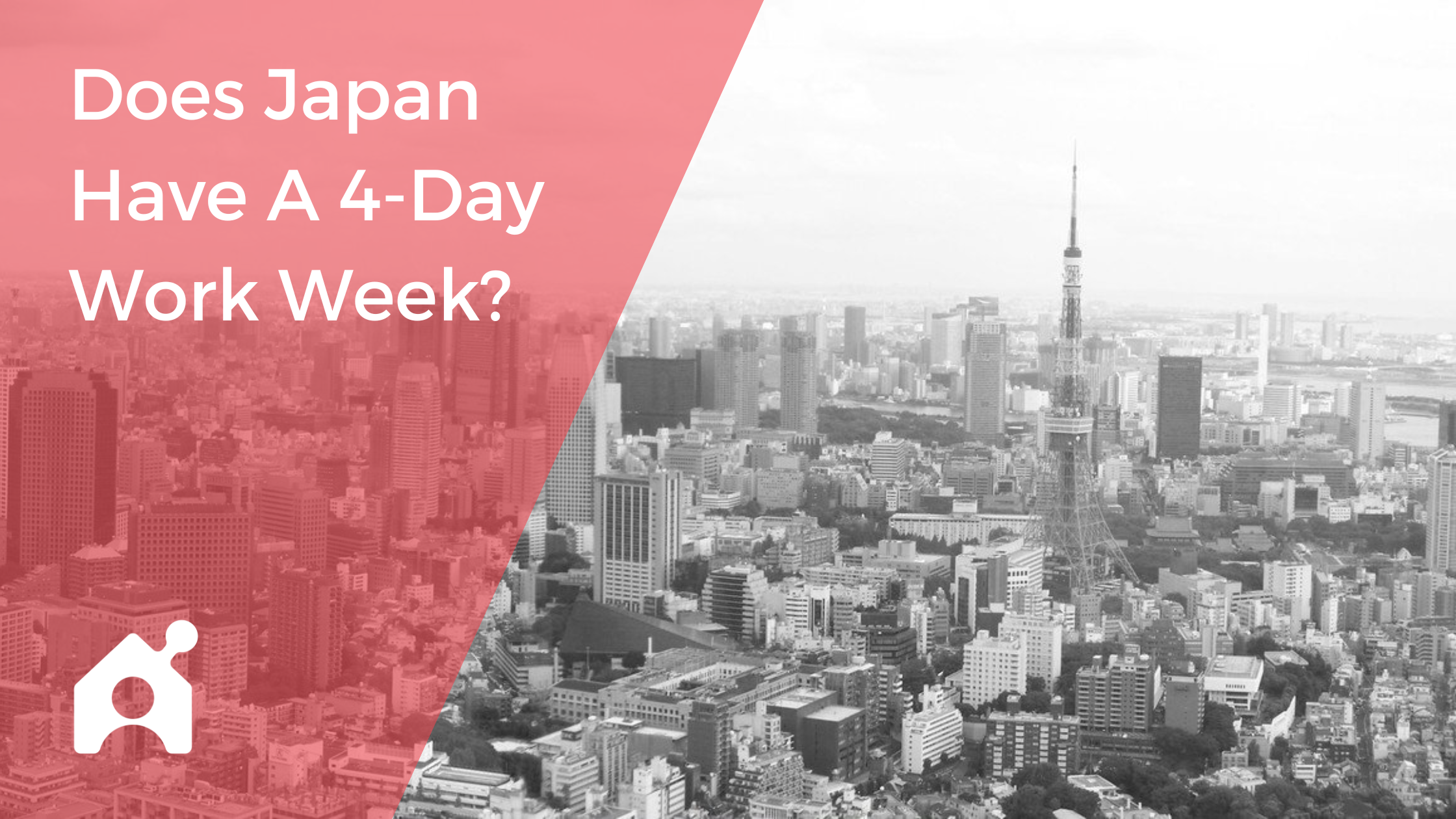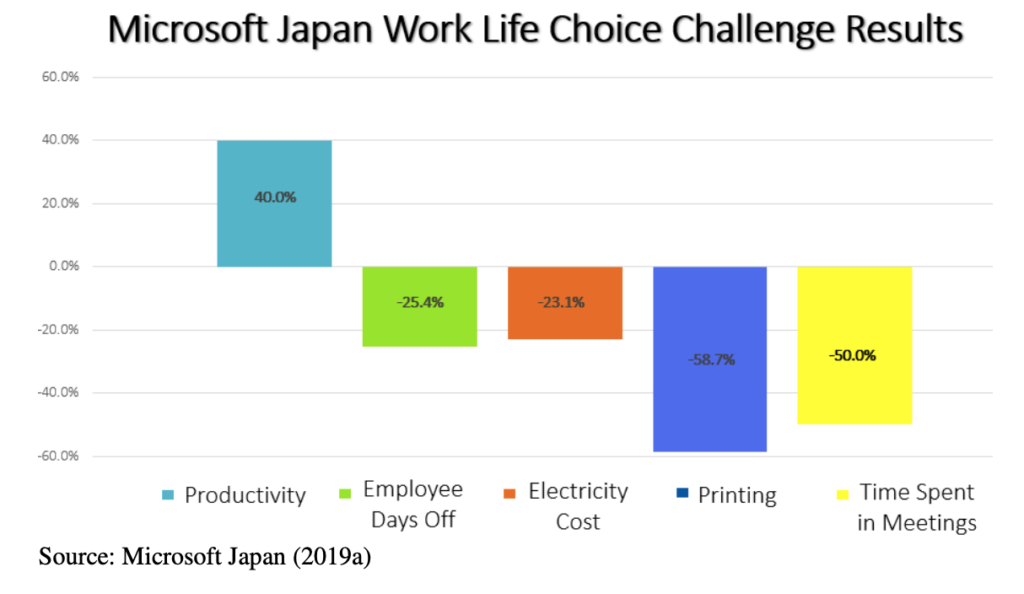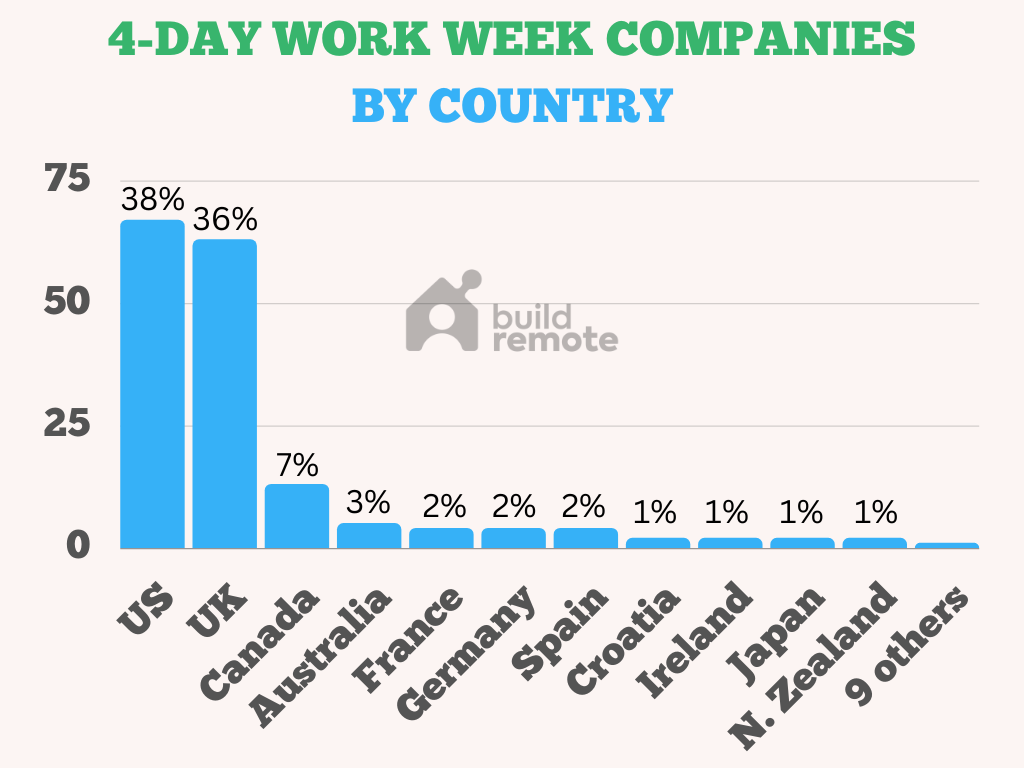Does Japan Have A 4-Day Work Week?

Does Japan have a 4-day work week?
No. Japan does not have a four-day work week.
Why are people talking about a 4-day work week in Japan?
There are two main reasons people have heard about the four-day work week in Japan.
1) Microsoft Japan ran a four-day work week trial called the “Work Life Choice Challenge” in the summer of 2019. The company claims the four-day trial boosted productivity by 40%.
2) In 2021, a proposal was discussed in Japanese parliament to allow workers to choose a four-day work week.
“This law would enable more people to work fewer hours and be less stressed, which would in turn reduce the likelihood of karoshi [death by overwork].”
Teruo Sakurada, a professor at Hannan University – DW
How many hours per week do people work in Japan?
The average work week in Japan is 30.7 hours.
In ranking countries from the shortest work week to the longest, Japan ranks 120 out of 187 countries tracked by OECD (36th percentile).
- 119 countries have a shorter work week than Japan
- 67 countries have a longer work week than Japan
The average work work is calculated by taking the total annual hours worked per year divided by the average number of people in employment per year, divided by 52 weeks. Therefore, the average work week includes hours for full-time, part-time, and self-employed people. It is not the standard work week for full-time employees.
Source: OECD (2022), Hours worked (indicator). doi: 10.1787/47be1c78-en
View the average work hours per week for every country.
Have any 4-day work week bills been proposed in Japan?
Yes. The government included a recommendation for Japanese companies to offer a four-day work week as part of Japan’s 2021 annual economic policy guidelines. The proposal was discussed in Japanese parliament to allow workers to choose, but nothing formal was voted on.
Track every four-day work week bill around the world here.
Have there been any 4-day trials or studies done in Japan?
Yes. Microsoft Japan tested a four-day work week for five weeks in the summer of 2019. The company reported a productivity increase of 40% with the shorter work week and that 92% of employees said they liked the shorter work week.

Other well-known four-day work week studies have taken place in Iceland (a country-wide study), Spain (a three-year, €50 million study), and New Zealand through a private company called Perpetual Guardian.
A non-profit, 4 Day Week Global, runs just about every well-publicized four-day trial you’ve read about. Recent trials have occurred in the United States, United Kingdom, and Ireland.
Track every four-day work week study here.
How many companies in Japan have a 4-day work week?
2 companies have implemented a four-day work week permanently.
This comes from Buildremote’s database of four-day work week companies, the most comprehensive list available. Here are some notable Japanese companies:
- Microsoft Japan (Trial)
- Panasonic (Optional)
- Mizuho Financial Group (Optional)
- Toshiba (Trial, Optional)
None of these companies have implemented a standard four-day work week of 32 hours with no loss in pay. They have either trialed the four-day week, or offered an option to employees to work fewer days for less pay.
Do you think our database is missing a company? Add a company here.
In which countries are the most 4-day companies located?
Right now, we have 177 four-day work week companies in our database across 20 countries. 38% of four-day work week companies are located in the United States, 36% are located in the United Kingdom, 7% are located in Canada. No other country takes more than a 3% share.
Here is an analysis of company adoption of the four-day work week by country.

View every country that has tested or implemented a four-day work week.
Learn more about the 4-day work week
I’ve personally run a four-day work week company since 2020. I’ve seen employee happiness and retention increase with no loss to productivity. Now I strive to provide the most comprehensive coverage of the four-day work week.
It seems that many individuals, companies, and countries are finally starting to question to standard, 40-hour work week for the first time in nearly a century. Follow along as we break down the trend.
